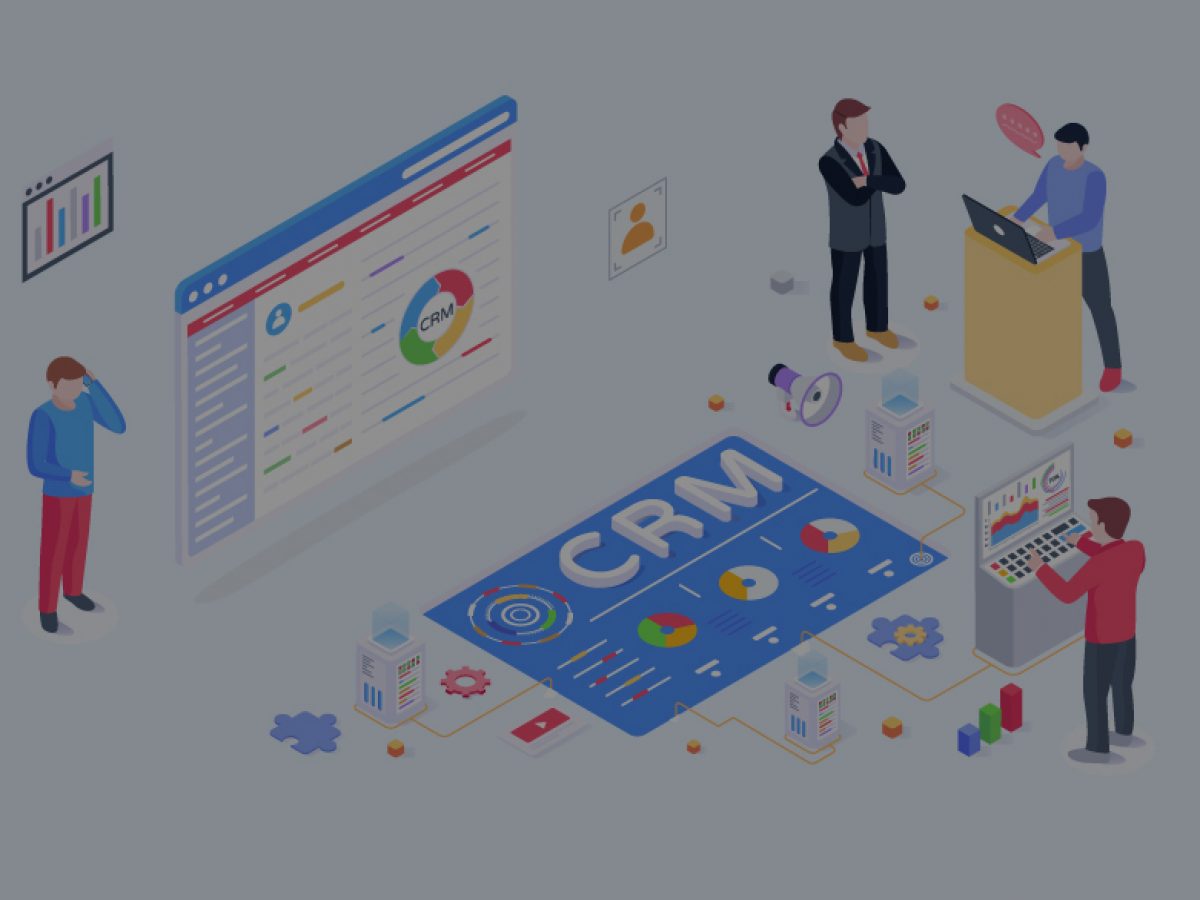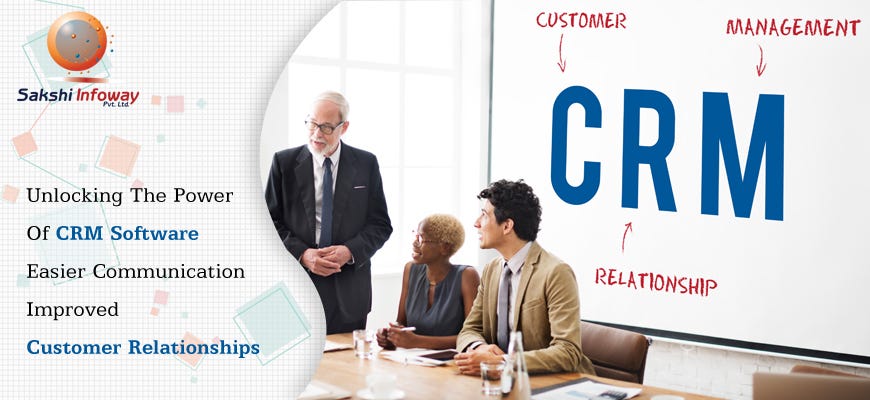There are three types of CRM software: operational, analytical, and collaborative. These CRM systems help businesses manage customer relationships, analyze data, and facilitate collaboration among team members.
Choosing the correct type of CRM software is essential for businesses to effectively meet their specific needs and goals. CRM software, or Customer Relationship Management software, is crucial in managing and optimizing business customer relationships.
From small startups to large enterprises, CRM software provides valuable tools and features to streamline customer interactions, improve sales and marketing strategies, and enhance customer satisfaction. However, not all CRM software is created equal, and understanding the different types can help businesses choose the right solution for their unique requirements. We will explore the three main types of CRM software: operational CRM, analytical CRM, and collaborative CRM, and discuss their respective benefits and use cases. By gaining insight into the various types of CRM software available, businesses can make informed decisions to improve their customer relationship management processes.
1. Strategic Crm
Definition and benefits: Strategic CRM builds long-term customer relationships and maximizes lifetime value. It involves developing effective strategies to acquire, retain, and enhance customer relationships. The key benefit of strategic CRM is improved customer loyalty and increased profitability.
Key features and functionalities: Strategic CRM software provides tools for customer segmentation, personalization, customer journey mapping, and customer lifecycle management. It also includes features for cross-selling and upselling, as well as predictive analytics and data mining capabilities.
Use cases and examples: Banks, telecommunications, and retail businesses commonly use strategic CRM. For example, a bank may use strategic CRM software to identify high-value customers and design personalized marketing campaigns to increase engagement and loyalty.
Definition and benefits: Operational CRM automates various customer-facing processes and improves operational efficiency. It helps businesses streamline sales, marketing, and customer service workflows.
Key features and functionalities: Operational CRM software includes functionalities for lead management, contact management, opportunity tracking, and order processing. It also provides tools for customer support ticket management and helpdesk operations.
Use cases and examples: Operational CRM is widely used by businesses across industries to manage their sales pipelines, track customer interactions, and automate order fulfillment processes. For example, an e-commerce company may use operational CRM software to manage customer orders, track shipment status, and provide customer support.
Definition and benefits: Analytical CRM analyzes customer data to gain insights and make data-driven business decisions. It helps businesses understand customer behavior, preferences, and needs, enabling them to personalize their marketing and improve customer satisfaction.
Key features and functionalities: Analytical CRM software includes capabilities for data mining, data visualization, predictive analytics, and customer segmentation. It also integrates with other business intelligence tools to provide comprehensive analytics and reporting.
Use cases and examples: Analytical CRM is commonly used by businesses in the e-commerce, hospitality, and telecommunication industries. For example, an online retailer may use analytical CRM software to analyze customer purchase history and identify cross-selling opportunities.
Definition and benefits: Collaborative CRM facilitates collaboration and information sharing among different organizational departments and teams. It helps businesses improve internal communication and coordination, leading to more efficient customer interactions.
Key features and functionalities: Collaborative CRM software includes features for shared calendars, task management, document management, and team collaboration. It also provides centralized customer information management tools, allowing different teams to access and update customer data in real time.
Use cases and examples: Collaborative CRM benefits businesses with cross-functional teams or complex customer workflows. For example, a customer service team may use collaborative CRM software to coordinate with the sales and product development teams to resolve customer issues quickly and effectively.
2. Operational CRM
Operational CRM is a type of customer relationship management (CRM) software that focuses on improving the efficiency and effectiveness of a company’s daily operations to enhance customer satisfaction and increase sales. It involves streamlining various operational processes such as sales automation, marketing automation, and service automation.
Some key features and functionalities of operational CRM include contact management, opportunity management, lead management, customer segmentation, and sales pipeline management. It also enables companies to track and manage customer interactions across multiple channels like email, phone calls, and social media.
Operational CRM software provides several benefits to businesses, including improved customer service and customer retention, increased productivity and efficiency, better sales forecasting and analysis, and enhanced collaboration among sales, marketing, and support teams.
Use cases and examples of operational CRM include managing and tracking leads and sales opportunities, creating targeted marketing campaigns based on customer segmentation data, and providing personalized customer support.
3. Analytical CRM
Analytical CRM:
- Definition and benefits: Analytical CRM software analyzes customer data and provides insights to improve business strategies. It helps identify customer trends, predict customer behavior, and make data-driven decisions for better marketing and sales activities.
- Key features and functionalities: Analytical CRM includes data mining, segmentation, predictive modeling, customer profiling, and campaign management.
- Use cases and examples: Analytical CRM is commonly used in industries like retail, banking, telecommunications, and e-commerce. Examples of analytical CRM software include Salesforce Analytics Cloud, Oracle CRM On Demand, and SAP CRM Analytics.
4. Collaborative CRM
Collaborative CRM is a type of CRM software that focuses on improving collaboration and communication between different organizational departments and teams. It allows for sharing customer information, interaction records, and documents, enabling better coordination and cooperation. One key benefit of collaborative CRM is that it fosters a unified approach toward customer service and relationship management, ensuring consistent and personalized customer interactions.
Key features and functionalities of collaborative CRM include shared customer databases, real-time communication channels, task management, and collaboration tools. These features facilitate seamless collaboration and information sharing, enabling teams to deliver superior customer experiences effectively. Some everyday use cases of collaborative CRM include:
- Internal collaboration between sales, marketing, and customer support teams to ensure a holistic view of customer interactions and needs.
- Collaboration with external partners and suppliers to manage joint projects or deliver integrated solutions to customers.
- Collaboration with customers through self-service portals and online communities, allowing for interactive engagement and gathering of customer feedback.
Overall, collaborative CRM software is crucial in enhancing internal collaboration and external partnerships, leading to improved customer satisfaction and business performance.

Credit: smallbusinesshq.co
Frequently Asked Questions For What Are The Types Of CRM Software?
What Are 4 Types Of CRM?
The four types of CRM are strategic CRM, operational CRM, analytical CRM, and collaborative CRM.
What Are The Three Types Of CRM Software?
The three types of CRM software are operational, analytical, and collaborative.
What Are The Different Types Of CRM Programs?
The types of CRM programs are collaborative CRM systems, operational CRM systems, and analytical CRM systems.
How Many Types Of CRM Applications Are There?
There are three types of CRM applications: operational, analytical, and collaborative. These applications help businesses manage customer interactions, analyze data, and collaborate with customers and employees. Choose the best-fit CRM for your business based on your needs and goals.
Conclusion
To choose the best CRM software for your business, it’s essential to understand the different types available. CRM systems can be categorized into three main types: operational, analytical, and collaborative. Operational CRM focuses on managing customer interactions, while analytical CRM helps analyze customer data for insights.
Collaborative CRM emphasizes teamwork and information sharing among different departments. You can select the right CRM software that aligns with your objectives by identifying your business needs and goals. Make an informed decision to enhance customer relationships and drive business growth.



